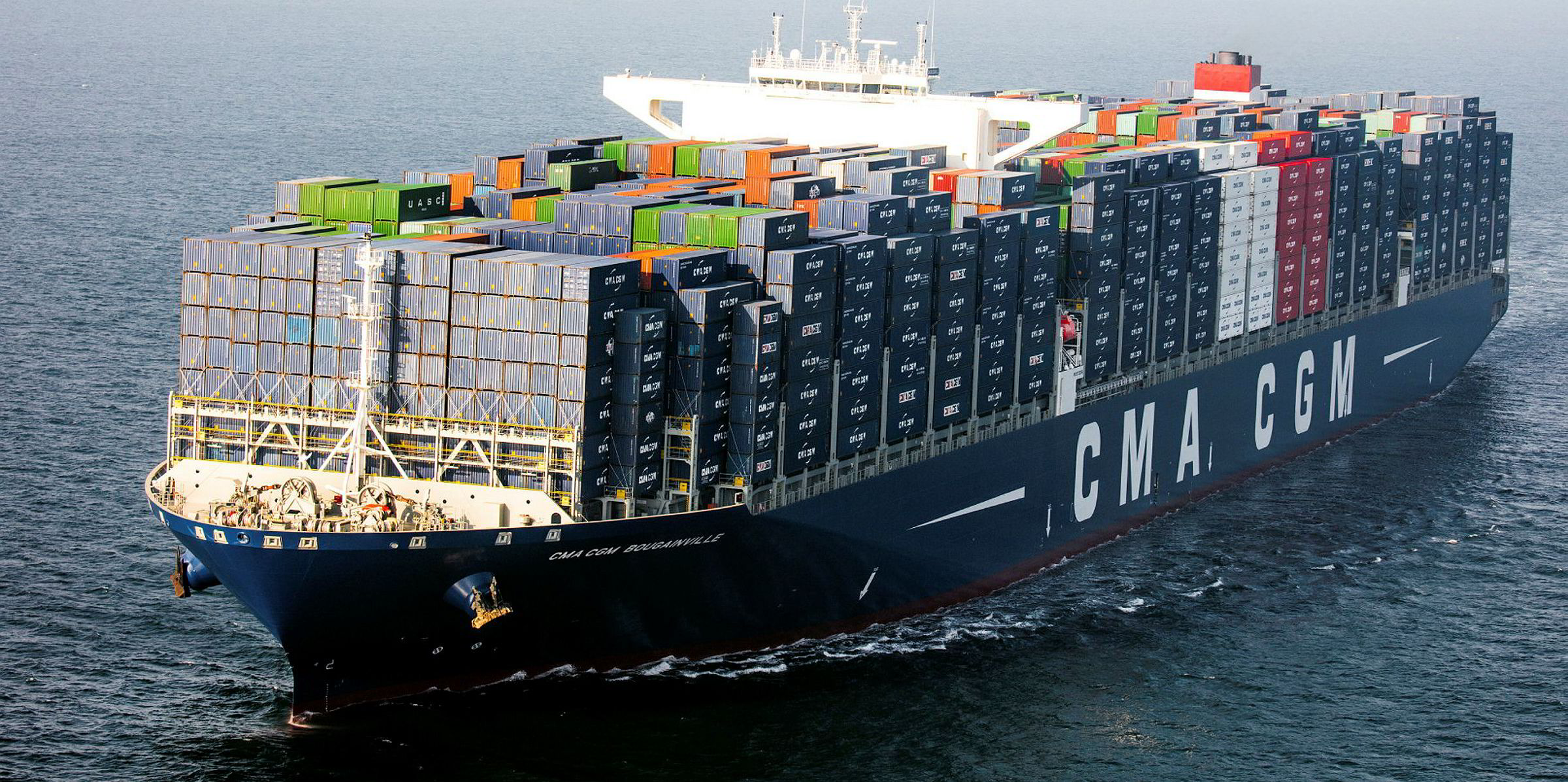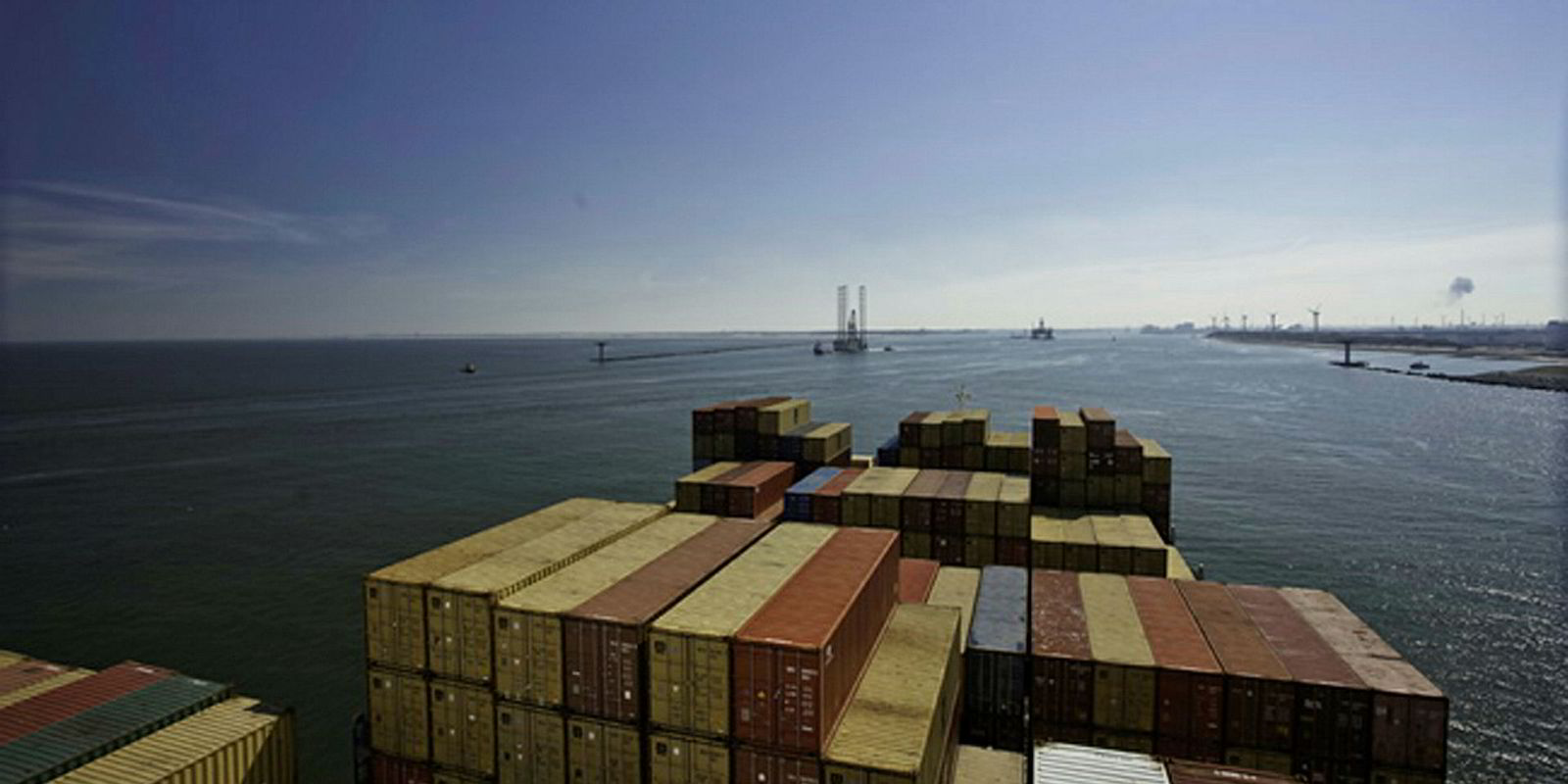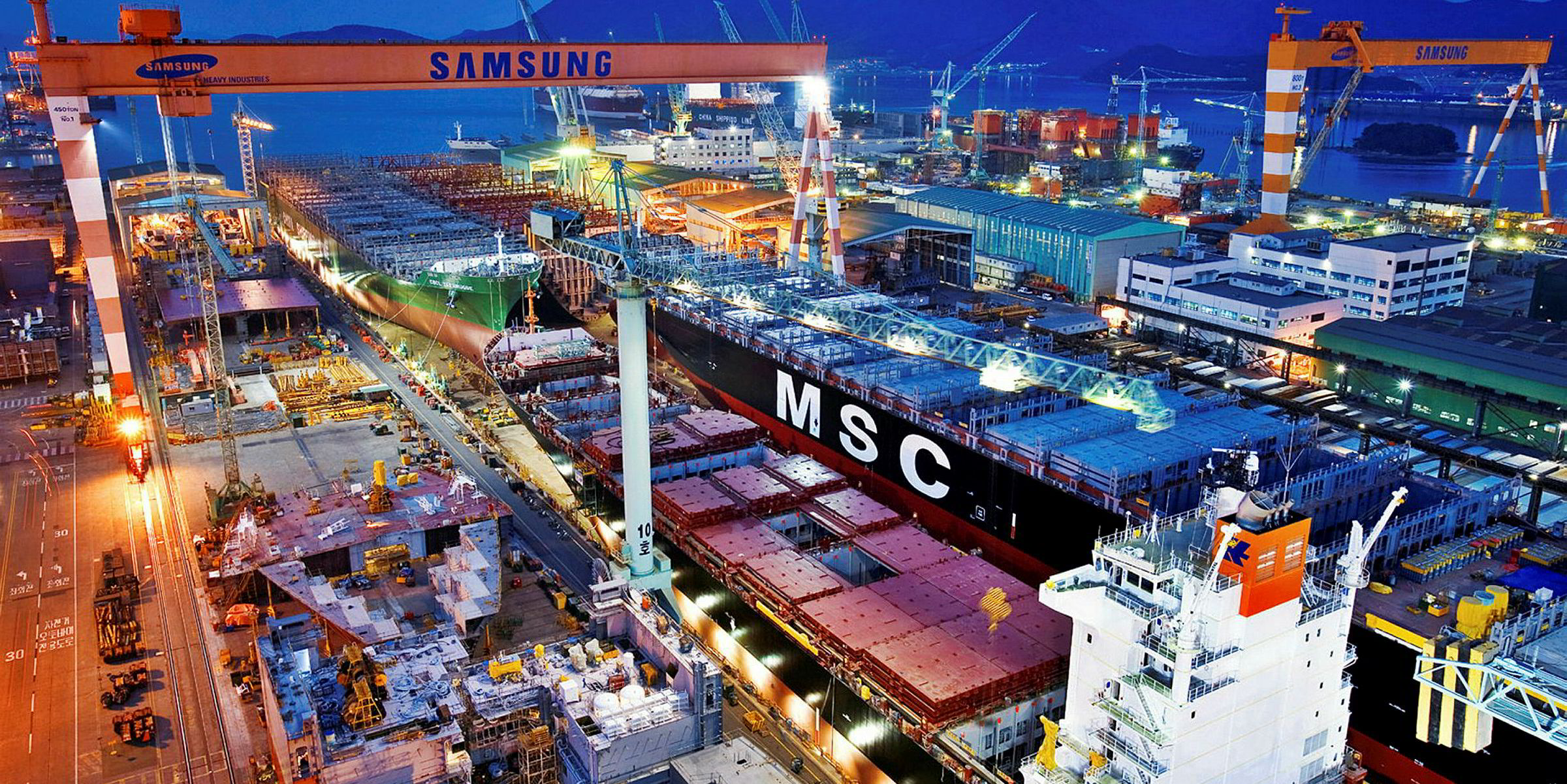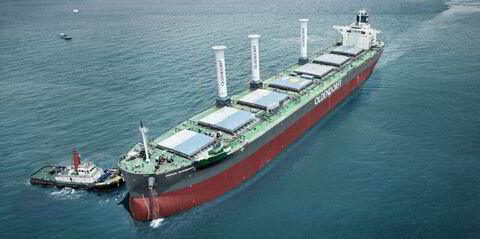A record number of mega-boxships were delivered last year, but there are signs this rush is abating.
Shipping consultancy Drewry said delays and slow-steaming could help out carriers this year.
A total of 26 ultra-large containerships (ULCs) of more than 18,000 teu were handed over last year.
All of the combined capacity of 525,500 teu was sent to work in Asia-North Europe trades.
Yards have 460,000 teu of ULC newbuildings set for delivery this year, followed by what would be another record haul in 2020 of 620,000 teu, Drewry figures show.
"While it is true that accommodating such large tranches of new capacity will be challenging, especially as the Asia-North Europe trade is in a slow-growth phase, there are reasons to believe that the task will not be as onerous as it initially appears," the consultancy said.
The company believes it is highly unlikely that all of the ULCs scheduled for the next two years will arrive as originally planned, with many being pushed into subsequent years.
And just because a new ship enters a trade it does not automatically follow that the net capacity of the route increases, Drewry added.
"Slow steaming gives lines the option to phase in a new vessel to a weekly service and maintain the existing capacity, assuming the new ship is of a similar size to those it is joining. The trade-off is longer transit times between ports," the firm said.
2M lines Maersk Line and MSC are doing exactly this from March.
Six extra ships will be deployed on their 10 existing Asia-Europe services.
This allows them to improve schedule reliability by adding an “extra operational buffer”.
Drewry said: "The decision to slow ships down is probably also motivated by a desire to reduce ship fuel consumption in light of the anticipated higher bunker costs associated with IMO 2020, but nonetheless it will enable more ships to be entered into the trade without adversely hiking up capacity."
Ocean Alliance carriers CMA CGM, Cosco/OOCL and Evergreen have 62% of the scheduled ULC deliveries this year, and 2M the rest.
Drewry said: "The amount of ULCs arriving over the next few years is an unwanted legacy from a period when carriers were overconfident in the market and possibly misguided in the benefits those ships offer. Nonetheless, we believe they will be able to mitigate the capacity inflation by delaying deliveries and slowing services."





